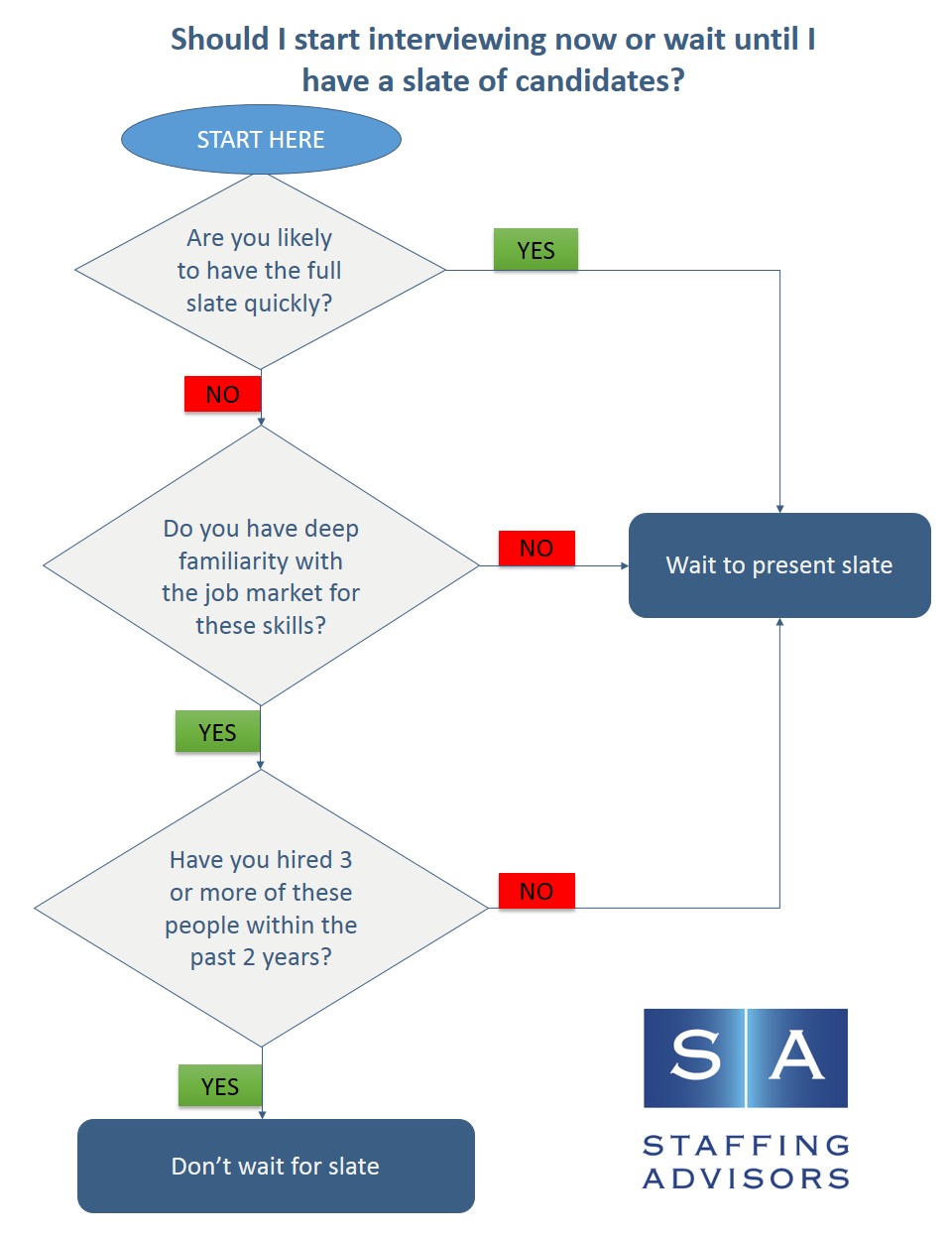When hiring, it’s tempting to rush into interviewing, rather than waiting to develop a full slate of candidates. Hiring managers are often eager to interview as soon as they approve a job description. It’s a request most HR folks try to oblige. And it’s often a mistake.
So what’s the downside to interviewing the first few qualified people who responded to your recruiting efforts? If it only takes one great person to fill the job, why wait around for more candidates to emerge? What if the good people get other jobs while you are waiting?
Occasionally, it does make sense to interview the first few people who apply. But most of the time, you actually slow down your search by interviewing too soon. Unless you are incredibly familiar with the job you are filling, waiting until you have developed a full slate of five to eight candidates almost always results in a better hiring decision. (To be clear, I’m talking about waiting 3 or 4 weeks, not 3 or 4 months.)
So how do you know when to jump, and when to wait? We’ve put a lot of thought into this question, and here is our decision process (click to see the larger view):
For example: If you routinely hire for Network Engineers, and currently have several on staff, then you have an excellent basis for comparison when you interview another Network Engineer. Because you have recently interviewed dozens of these candidates, you can instantly recognize a good one when you meet them. And you know what to pay them. No need to wait for a slate here.
But if you have not recently interviewed any Network Engineers, you don’t really have a basis for comparison. You need to educate yourself before you can make a fully informed hiring decision. You are unfamiliar with the job market, no matter how deeply familiar you are with the job and skills required. You need to see firsthand how people from various backgrounds would bring different capabilities to the job. You need to see how compensation for the role varies by skill level. In short, the early candidates might be fine – but without a full slate of candidates to choose from, you are not ready to properly evaluate them, or to understand how your job compares to their other options.
Here are 5 ways to lower your hiring risk and hire better people.
If you’d like to stop wasting your time on the irrelevant, superficial aspects of interviewing, and start understanding the deeper elements of what really predicts success a new hire, read our post on How to Conduct a Job Interview so Top Performers Actually Want to Take Your Job.
And, if you prefer all that research and information pulled together into one attractive document you can easily share with others, download our Employer Guide to Interviewing.
Of course, interviews are only one component of a great hiring process, our Resource Center has additional topics you might find helpful:
- How to Replace Underperforming Employees
- How to Write Job Descriptions that Attract Great Candidates
- How to Handle Bad Glassdoor Reviews
- How to Evaluate the Effectiveness of Your Hiring Process
- How to Make Your Hiring Process More Certain, Predictable and Consistent
Disclaimer: This advice will be most relevant to hiring managers who are interviewing professional staff in large metropolitan areas. Our perspective is shaped by our work, and we work in a retained executive search firm, conducting searches for CEO and senior staff positions. We’ve completed over 600 searches for associations and other nonprofits in major metropolitan areas like Washington DC, New York, and Chicago, so we make no claim that all of our advice will be relevant if you are interviewing for other types of positions in other job markets.
